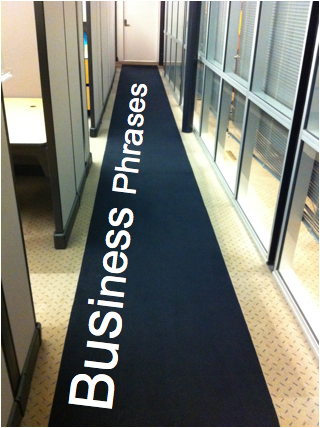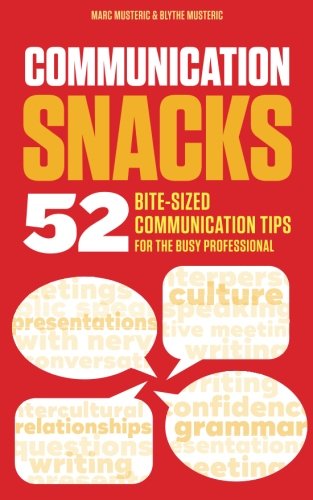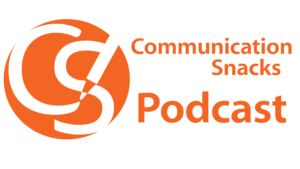
These key business phrases will help you improve your business communication skills at work. The business phrases listed below cover basic sentence starters, replies, reporting phrases, hypothetical statements, and conversation enders. They can be used during meetings and while talking to a coworkers.
Try using these phrases in conversations at work. Choose one phrase per day. See how many times you can use the phrase. If you are not sure how to use one of these phrases, ask a coworker. You should also make your own list of common business phrases you hear at your workplace. Try to add a few phrases a week to your list. You can start by studying these key phrases:
Sometimes it can be difficult to know how to begin a sentence in a work setting. Try using these phrases to help you get started.
The key thing is...
We need to get...
Look,...
One thing we’re really gonna have to do is...
I just wanna say...
Honestly...
The bottom line, realistically, is...
I’d like to begin by...
It is my opinion that...
I have noticed that...
Example: "The bottom line, realistically, is that we need to generate more revenue in FY14."
It is also important to have a few key replies “in your pocket” to respond to a coworker, client or business associate.
I know.
I feel the same way.
Right.
Sounds like a plan.
Sounds good.
Sure.
Absolutely.
Ususally.
True.
That’s good to hear.
I completely agree.
I’m not sure.
Let me get back to you. (Use this if someone asks you something and you don’t know the answer.)
Example: "The bottom line, realistically, is that we need to generate more revenue in FY14."
Example reply: "I completely agree."
Often you will be asked to give a quick report about an event, meeting, phone call, etc. Use these phrases to report information back to your boss, coworker or anyone else who might ask you how something went.
Good outcome:
It went as expected. (There were no surprises.)
It went well.
It went better than we hoped.
Great outcome:
It couldn’t have gone any better. (It went very well.)
We rocked it. (This is slang and should be used in casual situations to show a lot of excitement. In other words, it went great!)
Not good or bad:
It went as well as could be expected. (Expectations weren’t high to begin with.)
It went okay.
Bad outcome:
I think we can learn something from this. (Perhaps it didn’t go so well)
We bombed.
It was a bloodbath.
Example: "How did the presentation at XYZ go?"
Example: "Great! It couldn’t have gone any better."
OR
Example: "Horrible. We bombed."
A hypothetical statement offers a possible scenario or outcome for the future. This is a good way to offer a suggestion. Hypothetical statements are often “if ... then” statements.
Assuming...
Assuming that we go with that...
But what if we...
It might work if we...
Supposing we...
It could be possible if we...
If..., then...
How about we try...?
Example: "Assuming XYZ signs the contract, we will be in a good position for FY14."
Ending a conversation may seem like it should be easy, but many people find this difficult. Here are a few phrases you can use to end a conversation.
(Note: It is not rude to end a conversation. Sometimes people wait for the other person to finish, but that may take a long time. It is okay to be the one to end the conversation. Just make sure you use polite language to do so.)
Sounds great.
We’ll follow up with all of this soon.
Let’s talk soon.
I hate to have to run, but I should get going.
I would love to hear more about this at a later time.
I appreciate you taking the time to discuss this.
I’m afraid I need to go.
Sorry to cut this short, but I have ... (a meeting, an appointment, etc.)
I look forward to speaking more about this.
Example: "We’ll follow up with all of this soon. Thanks for your time."
Meeting between a supervisor and a sales employee.
Supervisor: The key thing we need to remember is that we need to generate revenue in FY14.
Sales employee: I completely agree.
Supervisor: Speaking of revenue, how did the presentation at XYZ go?
Sales employee: Great! It couldn’t have gone any better.
Supervisor: That’s good to hear because assuming XYZ signs the contract, we will be in a good position for FY14.
Sales employee: Absolutely.
Supervisor: I have to get to a meeting. We’ll follow up with this once we’ve finalized the contract.
Looking to practice your business vocabulary? Try these pages:
Adverbs of Frequency at Work
Business Vocabulary Quiz 1
Business Vocabulary Quiz 2
Working Vocabulary Quiz 1
Working Vocabulary Quiz 2

 About MyOvient
About MyOvient Contact Us
Contact Us


